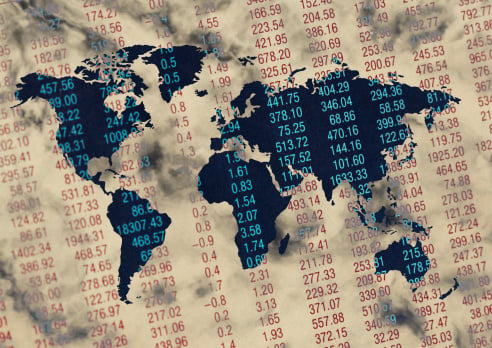Economy
World Economic Forum Lists 10 Trends That Will Define Global Agenda
Published:
The World Economic Forum’s (WEF’s) “Outlook for the Global Agenda 2014” is based on the opinions of 1,592 important people from 112 nations around the globe. Leaving aside whether that sample number is too small to accurately define predictions of the future, the new report identifies “the top ten trends” facing mankind. The aspect of the report that stands out is how many of these are defined by technology and its dangers. Just a few years ago, these kinds of threats would not have been on the list at all. Source: Thinkstock
Source: Thinkstock
The 10 trends are:
1. Rising societal tensions in the Middle East and North Africa
2. Widening income disparities
3. Persistent structural unemployment
4. Intensifying cyber threats
5. Inaction on climate change
6. Diminishing confidence in economic policies
7. A lack of values in leadership
8. The expanding middle class in Asia
9. The growing importance of megacities
10. The rapid spread of misinformation online
Taken one by one: social tensions in the Middle East are centuries old, and so are income disparities and unemployment issues. The jobs and income problems may have been made more acute by the global recession, but there have been waves of economic turmoil worldwide that have caused similar anxiety many times before.
The lack of values in leadership is also an issue that has existed almost forever. Among the major nations, and many minor ones, “valueless leadership” has been the rule more often than the exception. And “diminished confidence in economic policies” assumes that most countries have ever had substantial policies in this area at all.
Misinformation online and cyber threats are entirely new because they are based on an Internet system that has only developed into a global one within the past 20 years. Unlike most of the other trends on the WEF list, these two are due to the ubiquity of technologies that do not have any borders and have almost no relationship to demographics or the economy. It is almost as easy to spread misinformation in underdeveloped countries as developed ones. As a matter of fact, because of the lack of technology skill in underdeveloped countries, it may be easier. Countries like North Korea have proved they are as adept at creating cyber threats as the programmers in any big country.
If the WEF report for 2014 has any single defining theme it is that technology has jumped onto the list of issues that define the world as much as others that have existed for much, much longer.
Want retirement to come a few years earlier than you’d planned? Or are you ready to retire now, but want an extra set of eyes on your finances?
Now you can speak with up to 3 financial experts in your area for FREE. By simply clicking here you can begin to match with financial professionals who can help you build your plan to retire early. And the best part? The first conversation with them is free.
Click here to match with up to 3 financial pros who would be excited to help you make financial decisions.
Thank you for reading! Have some feedback for us?
Contact the 24/7 Wall St. editorial team.